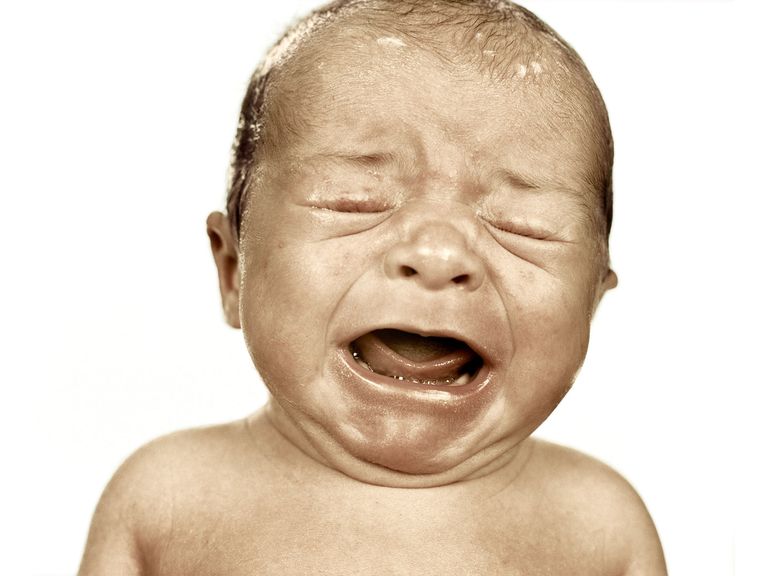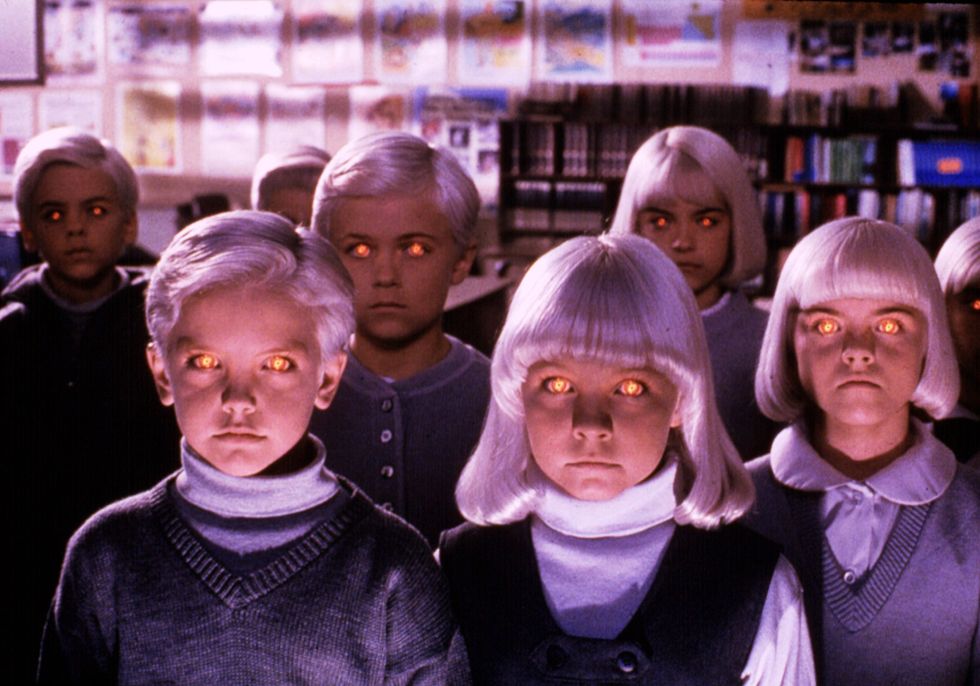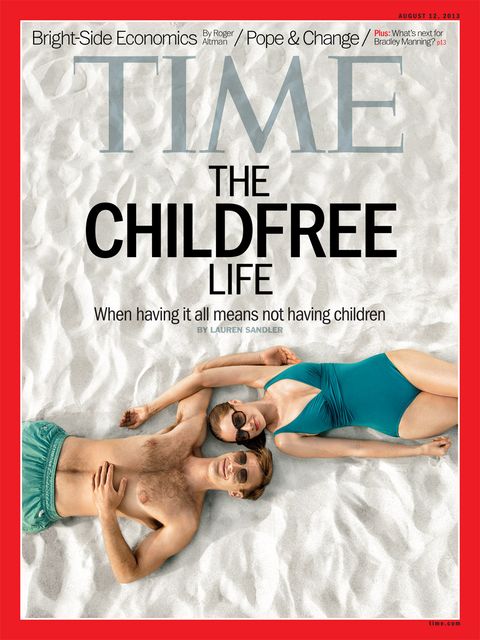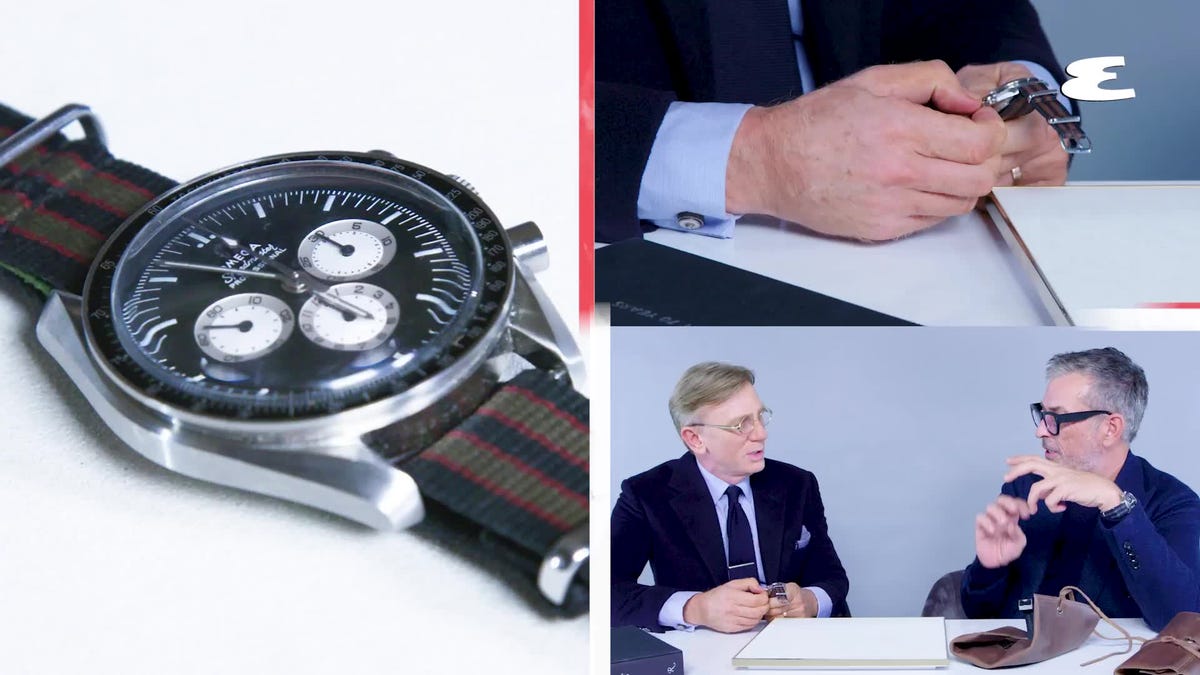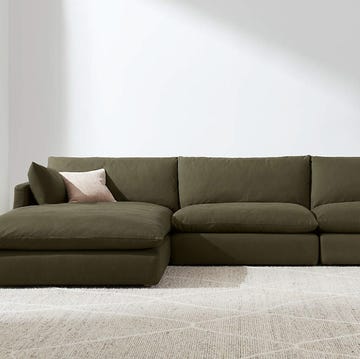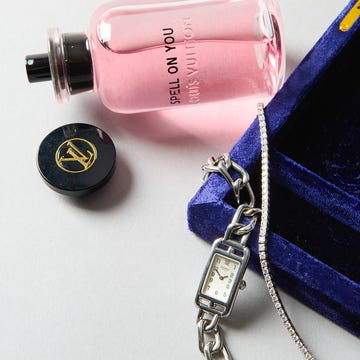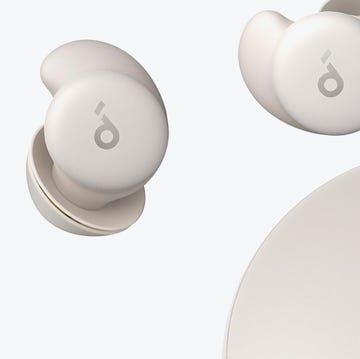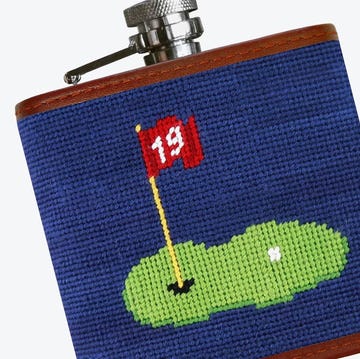I like a house party as much as the next guy. But this one? Not so much. The dress code appears to be bibs and blankets. People are drinking warm milk, which they can barely keep down. And it's hard to get a conversation going. I tried chatting with the host just now—let's call him Leo—but he barely said a word. Mostly he just held my finger.
Leo turned one today. Hence the party—a swarm of moms and babies giving it the full coochie-coo. It's not my usual Saturday afternoon, but his parents are friends of mine and I haven't seen them in ages. We used to play tennis together and drink Scotch in this very apartment. But then Leo moved in, canceling tennis, and now our single-malt tasting room is literally crawling with his closest friends. They've filled the place with strollers, bottles, and Fisher-Price whatevers. And the music these kids are into, it's just the same song on repeat. I get it—the wheels on the bus are going round. They're wheels.
Being childless, I can't help feeling like an interloper at these things. Yet here we are, my wife and I, looking a bit lost and wondering if it's too soon to make an exit. This is the realm of women with papooses, grandmothers playing peekaboo, and dads who hover like the Secret Service, ready to catch or grab at a moment's notice. We childless friends from a former life get spun out, as though by centrifuge, to the fringes of the party, the farthest orbits of irrelevance. So we stand on the sidelines, observing the parents across a gulf, perplexed that such a distance should have opened up so quickly.
"Want to hold him?" This always happens: A well-meaning parent tries to throw us a line before it's too late. In this case, it's Leo's uncle. He hands me his own baby boy, who starts pawing my face. It's only a matter of time now. "Why don't you and Mrs. B. make a baby?" he says. "Best thing I ever did."
And there it is. The casual approach. Rather than tiptoe up to the question like a bomb that might go off at any minute, just toss it out there like it's nothing. Did you see the game last night? Ever thought of having a child? I could pause at this point, look at my shoes, and concoct some awful story about "the third miscarriage." But why make a production out of it? It's much better to just whip out my phone, show him pictures of the dogs, and say, "We've already got our hands full with these two." Keep it breezy. He'll say, "Awww, cute, is that a Boston terrier?" And I'll say, "Her name's Onion," and he'll ask, "Why Onion?" and the whole topic will be safely averted.
But this guy won't let go. "No, I mean human babies," he says.
"I'm just trying to keep my prebaby figure," I tell him.
"Seriously, though, you must have a reason. Is it medical? I mean, you could always adopt..."
It's not that he means to be rude. He just doesn't realize—and neither did the cabdriver, the insurance broker, the FedEx guy, or any of the others—that this question has tendrils extending into every corner of a man's life. If you yank this thread, the whole coat unravels, leaving me standing there naked for all to see. Which is not a good look—especially at a baby's birthday party.
Nonparents are pariahs. The stereotypes aren't kind. Women are careerist and cold. Men are feckless and immature. Both are traitors to their nature.
I never thought I'd be this guy, the weird guy at the party without kids. But then, I never thought I'd be the other guy, either. I just didn't think, which explains a lot. I suspect that for many men, fatherhood is a distant train on the horizon that eventually pulls into the station, either by accident or by design. But it never loomed for me. Growing up, all I knew was that I didn't want to be like the adults I saw every day: my parents. Not because they're bad people—they're not—but because they were unhappy. We all were.
They'd had an arranged marriage. In the seventies, within the space of fourteen days, my father met my mother, married her, and then moved with her from West Bengal to south London, where strikes were crippling the country. They'd each lived through hardship before, particularly my mother, but there were no friends or family around this time; they were in it alone. And to cap it all, they didn't get along.
In our home, a child wasn't a delight but rather a burden. If my family were a triptych, it would open with my father scowling in front of the television, followed by my mother seething in the kitchen, and then me in my room, dreaming of escape, each of us profoundly alone. I spent eighteen years marinating in their resentment of each other and then my resentment of them—a sauce that only thickened with time.
I've always seen my childhood and my childlessness as umbilically connected. But that's not typical. For many, an unhappy childhood is as much a motive to have kids as it is a deterrent. Instead of avoiding family life, I might easily have resolved to create the happy family I never had. Conversely, plenty of childless people come from perfectly happy homes. Everyone reaches this decision by following their own path. No two snowflakes are alike.
I learned this from hanging out on the Childless by Choice Project Facebook page. It's a small group, with around fourteen hundred members; about four fifths of them are women, which is standard for the nonparent subculture. They're a feisty lot, defiant and defensive, as though a stand were being taken and parents and nonparents were somehow at odds, each sniping at the other: You're selfish! No, you're selfish!
Popular posts often show children or parents in a negative light—a story about a delinquent mother, say, or a video of a toddler throwing a tantrum in a restaurant (sample caption: "Your child should be in commercials . . . for Trojan"). Parents are called "breeders," a term of contempt. Nonparents are described as "child-free," which they prefer to "childless," since it denotes liberty rather than lack while placing children in the same syntactic class as gluten, smoke, and STDs.
Laura Scott, the Florida life coach who founded the page, says her members are just reacting to the stigma of childlessness. But the antipathy toward children is real. Scott, for instance, is a perfectly pleasant woman who genuinely doesn't want to hold your baby. "Anyone under the age of twelve," she says, "I just don't have an affinity for." And more dyspeptic voices are easily found. "I call them small mammals," says Paul, a scientist from Oxford, England, in his fifties. "They don't give me or my wife any warm feelings. Parents make these nebulous statements about the deep positive stuff that children bring into your life, but that's all bullshit—justification after the fact."
The likes of Laura and Paul are not as aberrant as you might think. Birth rates are dropping in most developed countries. And for the first time ever, there's actually a sound moral argument to be made for not procreating: The planet needs a breather, and going childless is as green as it gets. I could leave a stretch Hummer idling in my driveway all day while burning tires in my backyard and I'd still do less damage than your average dad.
But the eco-argument is seldom the real reason for going childless. At best, it's a shield against the critics. My reasons, like everyone else's, are personal. For me, it was self-actualization in the Maslowian sense—the drive to fulfill our creative potential and be all that we can be. This is the narrative of our times. Rather than producing the next generation for tribe, faith, or country—allegiances that are losing their hold—we are loyal to ourselves first in order to pursue happiness and maximize our lives. We live longer than ever; the world's knowledge is at our fingertips. This is the age of the life hack, the bucket list, and that greedy phrase "having it all." So the question becomes, Will a child enhance that ride or derail it?
This may not be as self-indulgent as it sounds. If I haven't found happiness myself, how can I pass it on to a child? Childlessness is often framed as selfishness, but there's no arguing with the Philip Larkin poem "This Be the Verse": "They fuck you up, your mum and dad. / They may not mean to, but they do." Increasingly, the famous physician's oath—first do no harm—seems the wisest course.
And there's something irresistible about seeing life as being full of potential. It's the essence of youth. I listen to house music on the treadmill. I know all the words to "Hotline Bling." I take comfort in the delusion that my clay hasn't set yet and my possibilities in this life are many. Parents are beholden and encumbered. But I'm free to wander as I please, or so I like to think.
Will Self once said that until you have children, you are essentially a fictional character. You can always write yourself a plot twist, change your name, change your life. But children put an end to all that—they require parents to be pillars of consistency so that the life of possibilities is now theirs. I've never quite shaken off the sense that a child might be the death of hope for me. There's the teenage terror of closing doors that were once open, whether we went through them or not.
Besides, when my wife and I first discussed it, we had no room for a child, quite literally. We were practically living in a studio. We'd both gotten a late start in a dicey line of work—she writes scripts; I write articles. And we were free agents, living that wobbly life of feast, then famine, then more famine, then okay, that's enough famine, I'm not kidding, it's getting cold in here. Bringing a child into our home would have been like chucking a baby onto a roller coaster.
We're on a steadier ship today, no doubt. And adoption hasn't been entirely ruled out. But we view it the way a wingsuit daredevil assesses the weather before leaping off a mountain—the conditions need to be perfect. Can we afford nannies and sitters and private school and soccer camp? Will we have time to play catch and watch endless reruns of Barney & Friends? Every time, we end up in full agreement that one of us will have to be the stay-at-home parent. At which point it goes quiet and I usually receive an email that can't wait. "Sorry, dear, can we do this later? Banana Republic is offering 40 percent off..."
I think I'd make a decent uncle, since uncles get to go home afterward. But fatherhood is 24/7, good days and bad. And a child doesn't need my bad days. I worry that my baggage will go once more around the carousel, and one day my child might be on a therapist's couch talking about me.
"Oh, don't worry, we all fuck them up!" That's what other dads tell me. They're so cavalier, and I like that about them. A spot of psychological damage is par for the course.
In 2013, Time magazine published a cover with the headline "The Childfree Life: When Having It All Means Not Having Children," featuring a smug couple on a beach living the high life. This is a common perception of the childless: They're people who surveyed the options and chose self-gratification, a life without responsibilities. I made no such choice. My life tumbles along and I blunder through, making choices that can't be unchosen, this is true, but childlessness wasn't one of them. It was a consequence, a side effect, not a goal. Although I try to deny it, life in the end is a winnowing of options as we become the product of our decisions, whether we meant to or not. And in this way, the reasons for not having children have accumulated through the years, like snow against a barn door. Leave it long enough and it just won't open anymore.
Lately—this shows you how conflicted I am—I've been thinking that parenting might actually be the best path to self-actualization. We were driving home a while back—my wife, the dogs, and I—when the traffic narrowed to one lane, slowing to a crawl. From every direction children flooded into the street, all dressed in Halloween costumes, these adorable little Batmen and Tinker Bells. And it was such a life-affirming scene, I felt the sadness in my chest. The path not taken has seldom looked so picturesque.
These poignant moments, they happen all the time. Families are inescapable—in malls, on billboards, on television. From my desk at home, I hear the sound of recess from a primary school at the bottom of the hill: yelping and chasing and playing. The usual questions churn: Who am I doing this for? Why do I exist? What use is all my self-actualization if I can't dump it all onto a small child?
We went home that night and hugged our dogs extra-tight. We didn't dress them up as zombies, but maybe next year. Maybe that's what happens to people like us. The childless often call other things "babies," and there's no question that Onion and Cujo are our furry surrogates. Dogs won't end up on a therapist's couch.
It's also true that they won't visit us as we wither away in a nursing home. They won't say "Daddy" or graduate or give us grandchildren. But this is our life and we must embrace it. Although I'll miss out on the joys of Halloween, I can at least create "book babies," an idea I've always liked. After all, childlessness offers what books require: acres of time and silence. Only it's never quite silent for me. There's always the sound of recess.
This article originally appears in the April '17 issue.
